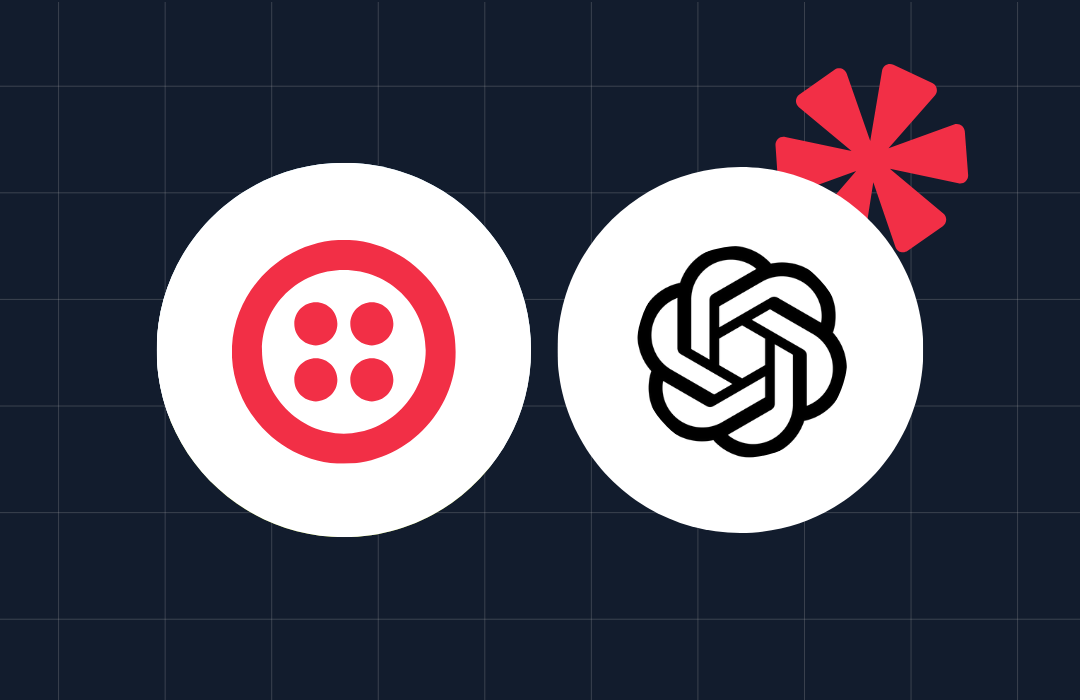OpenAI Simplifies Voice Assistant Development

Table of Contents
Streamlined Natural Language Understanding (NLU) with OpenAI's APIs
One of the biggest hurdles in voice assistant development is building robust Natural Language Understanding (NLU) capabilities. Users express themselves in diverse ways, incorporating slang, colloquialisms, and ambiguities. OpenAI's powerful NLU APIs, leveraging the capabilities of advanced GPT models, elegantly handle these complexities. These APIs effortlessly dissect user queries, identifying intents and extracting key entities with remarkable accuracy.
- Reduced development time for intent recognition and entity extraction: OpenAI's pre-trained models eliminate the need to build these components from scratch, saving developers countless hours.
- Improved accuracy in understanding user queries, leading to better voice assistant responses: The sophisticated algorithms within OpenAI's APIs result in more precise interpretations of user input, minimizing misunderstandings and improving the overall user experience.
- Support for multiple languages and dialects: OpenAI's models are trained on massive multilingual datasets, enabling developers to build voice assistants that cater to a global audience.
- Examples of specific APIs and their applications in voice assistant development: The GPT-3 and GPT-4 APIs are particularly useful for understanding context and generating natural-sounding responses. For speech-to-text conversion, OpenAI's Whisper model offers state-of-the-art accuracy and efficiency.
Effortless Speech-to-Text and Text-to-Speech Integration
Seamless conversion between speech and text is fundamental to any successful voice assistant. OpenAI significantly simplifies this process with its advanced speech-to-text and text-to-speech capabilities.
- High-quality audio transcription capabilities: OpenAI's models provide accurate transcriptions, even in noisy environments or with diverse accents.
- Natural-sounding text-to-speech synthesis: The synthesized speech generated by OpenAI's APIs sounds remarkably human, improving the user experience and making interactions feel more natural.
- Integration with popular development platforms and frameworks: OpenAI's APIs are designed for easy integration with existing voice assistant frameworks, allowing developers to leverage their existing infrastructure.
- Improved user experience through clear and accurate audio processing: By providing accurate and natural-sounding audio processing, OpenAI contributes significantly to a smoother and more satisfying user experience. This is crucial for user adoption and satisfaction.
Reduced Development Costs and Time-to-Market
One of the most compelling advantages of using OpenAI for voice assistant development is the significant reduction in development time and costs.
- Elimination of the need to build complex NLU models from scratch: OpenAI's pre-trained models provide a ready-to-use foundation, eliminating the need for extensive in-house development.
- Faster prototyping and iteration cycles: Developers can quickly test and refine their voice assistants, accelerating the development process.
- Reduced reliance on large teams of specialized engineers: OpenAI's tools empower smaller teams to build sophisticated voice assistants, lowering labor costs.
- Cost-effective solution compared to traditional methods: The cost savings associated with using OpenAI's APIs often outweigh the costs of developing and maintaining in-house solutions. For example, a project that might have taken six months and a team of five engineers could be completed in three months with a smaller team using OpenAI, resulting in significant cost savings.
OpenAI's Commitment to Ethical Voice Assistant Development
OpenAI is committed to responsible AI development, and this commitment extends to its tools for voice assistant creation. OpenAI provides guidelines and best practices to help developers build ethical and unbiased voice assistants.
- Mitigation of bias and fairness in voice assistant responses: OpenAI actively works to address potential biases in its models to ensure fairness and inclusivity.
- Data privacy and security considerations: OpenAI emphasizes the importance of protecting user data and privacy.
- Transparency in the AI's decision-making process: OpenAI promotes transparency in how its models function, allowing developers to understand and address any potential ethical concerns.
Revolutionizing Voice Assistant Development with OpenAI
In conclusion, OpenAI is transforming voice assistant development. By offering powerful, user-friendly APIs and pre-trained models, OpenAI enables developers to build high-quality voice assistants faster, cheaper, and more ethically. The ease of integration, improved accuracy, and reduced development time represent a significant leap forward. Start simplifying your voice assistant development journey today with OpenAI's powerful tools. Learn more and explore the possibilities of building innovative voice assistants with OpenAI's resources and documentation. Visit [link to OpenAI website].

 Blake Lively And Anna Kendricks Another Simple Favor The Truth Behind The On Set Drama
Blake Lively And Anna Kendricks Another Simple Favor The Truth Behind The On Set Drama
 Press Conference Highlights Carneys Vision For Economic Transformation
Press Conference Highlights Carneys Vision For Economic Transformation
 The Global Ev Race Chinas Advance And Americas Competitive Strategy
The Global Ev Race Chinas Advance And Americas Competitive Strategy
 Paddy Pimblett On Dustin Poiriers Retirement A Critical Look
Paddy Pimblett On Dustin Poiriers Retirement A Critical Look
